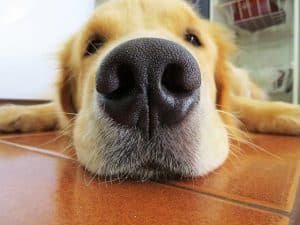A kitten or cat losing teeth can be normal or at times abnormal, depending on the cause. This loss may be accompanied by other symptoms such bad breath, swollen or receding gums, difficulties in eating, and so on.
Also, your feline may lose specific teeth types including incisors, canines, premolars or molars. This can happen to a kitten or an adult cat.

If your worried, vets will tell you that the loss of teeth in cats is a natural phenomenon, just as it is in human beings. It is a major stage in its physical development. This is only considered natural if it happens in kittens. However, if it happens in adult felines, then you have every right to get worried.
If it happens to adult cats, it signifies dental or physical issues. This issues can best be diagnosed by pet vet. If not an injury, it might be a dental infection. Therefore, caution needs to be taken as this problem may affect more teeth.
You may not even realize if your feline has lost one or a few of its teeth unless you take time to check or you regularly maintain its dental hygiene. Some cats lose teeth without the knowledge of their owners.
Contents
How to tell if your cat has lost teeth
Even without checking if its teeth are intact, there are some indications you can check to tell if your cat is losing teeth. According to the Cat Health Guide, some of the symptoms of a cat losing teeth are as follows:
- It develops an unusual poor appetite
- You may note bad breath emanating from your feline’s mouth
- The cat’s gums become swollen and inflamed
- It may have difficulties chewing food, especially meat and hard foods
- You may also note drooling saliva
- In some cases, its mouth may remain open, indicating that it is having problems closing it
- Receding gums such that one can see the tooth root
- Plague on its remaining teeth
You may note a few or all these symptoms. These symptoms are, in most cases, evident in adult felines.
5 Reasons why your cat is losing teeth
Like earlier noted, this issue is a real bother among many people. It feels bad to note that your feline friend having difficulties eating. Just imagine a situation where food falls off its mouth while eating. It is not only worrying but also traumatizing.
What could make your cat lose teeth? According to pets.thenest.com, this problem means a lot of things. Some of these causes are natural while others are not. Identifying the cause is essential in coming up the right treatment or measure.
Below are the most common causes or reasons.
1. Shedding milk teeth among kittens
Do kittens teeth? Yes, they do. You should expect this among kittens but not adult felines. When a kitten is born, it doesn’t have any teeth. As it continues suckling, milk teeth develop. They help it eat solid foods.
Within the third week after birth, your kitten will already have developed milk teeth. They are temporary. Losing milk teeth among kittens is normal and expected.
Within 4 months after birth, your kitten will begin shedding the milk teeth. They must be shed to give way to strong adult teeth. Commonly, they are 26 in number. Once they are shed, they give way to 30 stronger ones.
Losing milk teeth among kittens is one of the most challenging moments. As they lose them, the gum becomes inflamed, swollen and red. Eating, in most cases, becomes a problem. Their overall health is also affected.
This stage shouldn’t make you call a vet. Every kitten goes through this. I know the stage makes you emotional but there is nothing you can do. Just relax and let it sail through this critical stage in life.
The best you can do is to regularly monitor your kitten during this period. This would help you to identify any abnormal growth or infection. If you note anything unusual, just call a vet immediately. However, just note one thing; this is a normal stage.
2. Injury
Have you noted your adult cat missing a front tooth or one with no teeth? This might be as a result of an injury. Just as people get injuries and lose their teeth, it can also happen to felines.
Do cats get injuries? The answer is YES. Pets.thenest.com notes that most front teeth among adult cats fall off as a result of injuries. It may fall or get hit by someone or something. Consequently, it loses one or a few.
You can easily tell if your feline is missing front teeth. The most common sign is that food will always fall off its mouth while chewing. There is nothing much you can do about it but a vet can always replace the lost one with new ones.
Periodontal disease
Just like human beings, cats are victims of the periodontal disease. Petmd.com notes that periodontal disease is one of the commonest dental diseases in cats. The disease is usually attributed to poor dental hygiene among pets, especially the accumulation of food particles.
The food particles that accumulate along the gumline cause some plague. When this plague combines with saliva, it becomes calculus. This causes a severe irritation of the gum, thus the affected tooth may fall off.
Periodontal disease in felines manifests through the following symptoms:
- Red, inflamed and swollen gum
- Inflammation of one or a few teeth
- Extremely bad breath
- Saliva that contains blood stains in it
If left untreated, research has shown that this disease may affect all teeth. Therefore, it is advisable to consult a vet on the same. The vet may do some tests on your cat’s saliva to ascertain the bacteria causing the condition.
Gingivitis
You should always know one thing; cat’s teeth falling out are caused by inflammation of the gum. Besides periodontal disease, gingivitis is another condition that felines are highly prone to. In fact, more suffer from gingivitis than periodontal disease.
What causes gingivitis? According to meowcatrescue.org, it usually attributed to the accumulation of bacteria in the mouth. Such a plague, as we all know, comes as a result of compromised dental hygiene. If left unchecked, plague becomes gingivitis.
Unlike periodontal disease, gingivitis comes along with severe pain alongside cat losing teeth. Before losing them, most felines become emaciated due to inability to eat. The gums and the whole mouth become severely inflamed. Just like the periodontal disease, gingivitis should be treated promptly, or else the cat will lose all teeth.
Stomatitis
You expect kitten teething on young cats. However, if this happens to older ones, it might be as a result of feline stomatitis. Just like gingivitis, stomatitis comes along with severe pain and inflammation in the gums.
Research has shown that stomatitis is a secondary dental condition. What does this mean? If some conditions such as gingivitis and periodontal disease are not treated, they may give stomatitis a chance to set in.
Given its severity, its effects are significant. Among old cats, inflammation of the gums makes the teeth to fall out. In most cases, the falling out is accompanied by bad breath. Treatment for stomatitis takes weeks to months.
Are your cat’s teeth falling out of stomatitis? If you aren’t sure, be careful to check some of the following symptoms:
- Very bad odor from your cat’s mouth
- Drooling saliva
- Emaciation
- It becomes unusually shaggy and unkept
- Weight loss since eating becomes a problem
With these symptoms, any vet will conclude that your feline is suffering from feline stomatitis. With proper medication, your cat will soon get healed.
Treatment
If your adult cat has this problem, visit a vet promptly. The vet will diagnose the cause and recommend the following treatment options:
- Administration of antibiotics
- Mouthwash to sooth the inflamed gums
- Cat tooth removal in case they are severely affected by plague and cavity
- Cat teeth cleaning for minor plagues
- Diet supplement, especially if the cat is having issues with solid foods
Your vet will, moreover, advise you that most of the cat’s dental issues are associated with poor dental hygiene. Therefore, checking your feline's dental health is the main prevention measure in preventing its teeth from falling out.
References
- animalplanet.com why is your cat losing teeth?
- meowcatrescue.org Gingivitis and Stomatitis in Cats





Leave a Reply
You must be logged in to post a comment.